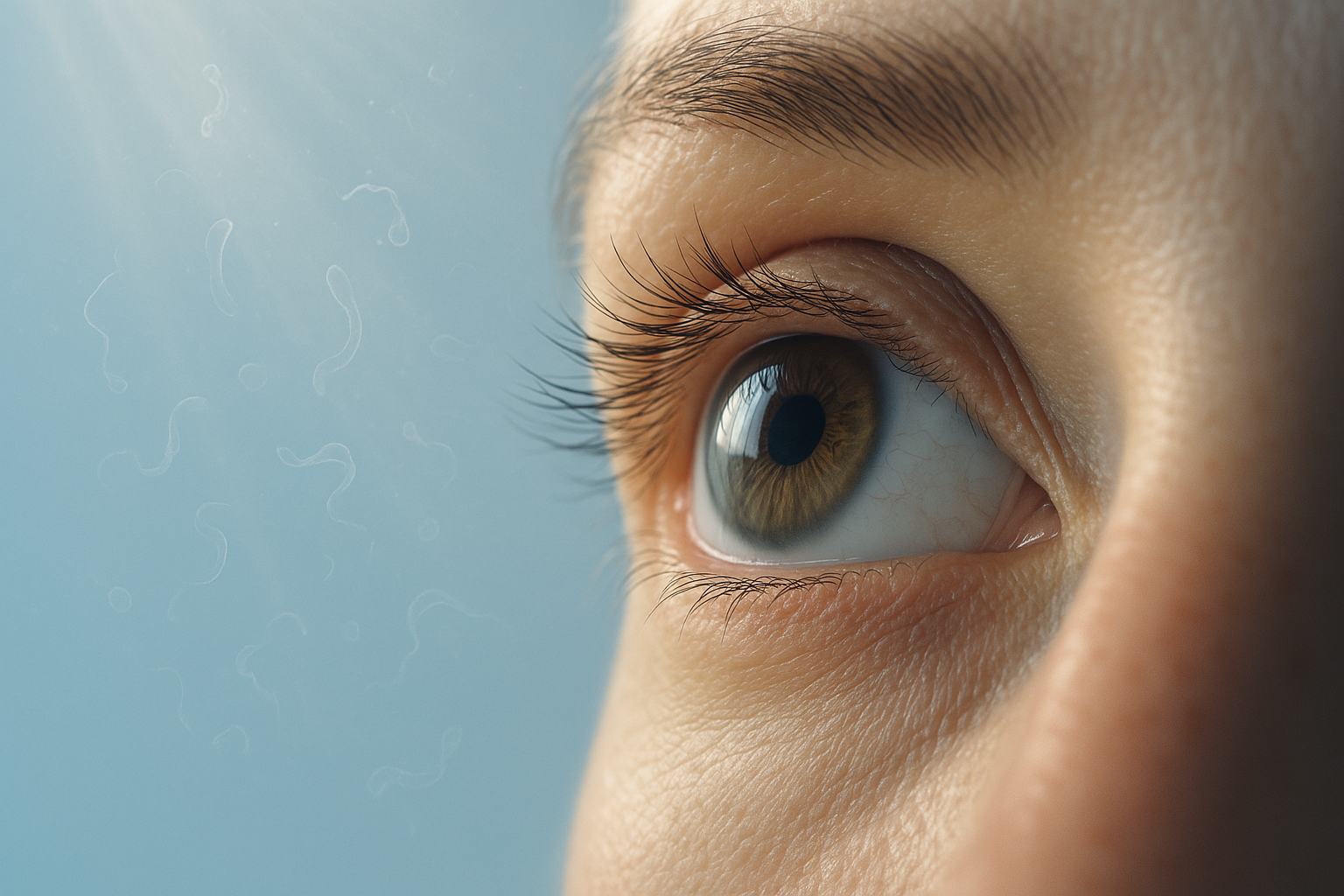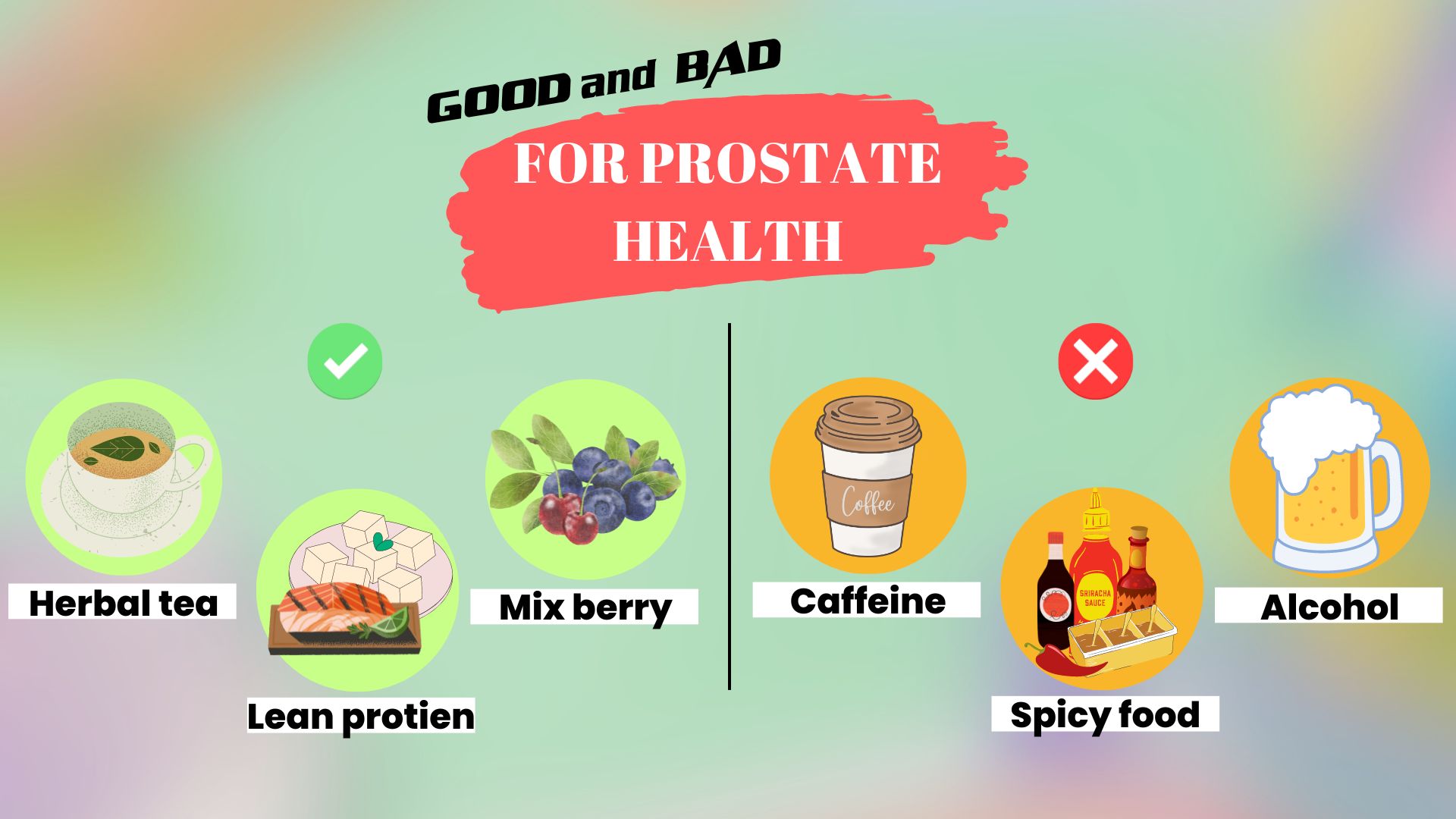
Eye Floaters: Causes, Risks & Treatments Explained
Eye floaters can be unsettling. They appear as drifting specks or cobwebs in your vision — sometimes harmless, sometimes a warning sign.
Below, we break down what causes floaters, how to tell harmless ones from danger signs, treatment options, and proven ways to lower your risk.
Understanding Causes & Mechanisms
Eye floaters form in the vitreous humor — the clear gel that fills the space between your lens and retina.
Over time, this gel changes consistency. Here’s how:
| Cause | Details |
|---|---|
| Vitreous Liquefaction | With age, the gel shrinks and becomes watery. |
| Collagen Clumping | Loose collagen strands stick together, casting moving shadows on the retina. |
| Aging | Most common driver. After age 50, 76% have floaters. [AAO] |
| Myopia (Nearsightedness) | Elongated eyeball stretches vitreous, making floaters more likely. |
| Retinal Tears/Detachment | Sudden new floaters can mean the retina is tearing. Urgent care needed. |
| Eye Trauma | Blunt injuries can disrupt the vitreous structure. |
Key Fact: Vitreous detachment, where the gel peels away from the retina, happens to most people at some point — it’s called Posterior Vitreous Detachment (PVD).
Why it matters:
When the gel tugs the retina too hard, it can cause tears or full detachment — leading to blindness if untreated.
Identifying Symptoms & Severity
Not every floater means trouble. But some signs require urgent help.
Typical floaters:
- Small spots that drift when you move your eyes
- Visible on bright backgrounds (sky, white walls)
- Tend to settle down over time
Danger signs:
| Symptom | What It May Mean |
|---|---|
| Sudden shower of floaters | Possible retinal tear or hemorrhage |
| Flashes of light (Photopsia) | Vitreous tugging the retina |
| Curtain or shadow over vision | Emergency: Likely retinal detachment |
| Sudden vision loss | Medical emergency |
Impact on daily life:
Studies show 33% of people with chronic floaters report moderate to severe daily visual disturbance. [PubMed]
Seeing Black Spots vs. Migraines
Some people mistake migraine auras for floaters. Auras appear as shimmering zig-zags or blind spots — not drifting dots. Knowing the difference helps avoid panic.
Exploring Eye Floater Treatments
Most floaters do not require removal. The brain learns to ignore them. But if they severely affect vision, some options exist.
| Treatment | How It Works | Pros & Cons |
|---|---|---|
| Vitrectomy | Surgery removes all vitreous gel, replacing it with saline. | Very effective for severe floaters. BUT: 15% risk of cataracts, possible retinal tears. Reserved for severe cases only. |
| YAG Laser Vitreolysis | Laser targets floaters to break them into smaller pieces. | Non-invasive. Still considered experimental. Limited long-term data. Not FDA approved in some countries. |
| Natural Approaches | Staying hydrated, wearing UV sunglasses, taking screen breaks. | May help you notice floaters less, but does NOT remove them. |
Note: Most eye doctors recommend observation over risky procedures. [AAO]
Hyaluronic Acid Drops?
Some people try lubricating drops, ginkgo, or vitamins to clear floaters. Research shows no solid evidence for these remedies, but good eye hydration never hurts.
Risk Assessment & Prevention
Can you prevent floaters? Not entirely — but you can lower certain risks:
| Risk Factor | How to Lower It |
|---|---|
| Myopia | Regular eye exams; early detection of retinal tears. |
| Diabetes | Control blood sugar to avoid vitreous bleeding. |
| Hypertension | Manage blood pressure; retinal blood vessel damage can cause floaters. |
| Post-Cataract Surgery | Be alert for new floaters after surgery. |
| UV Damage | Wear sunglasses to protect retinal health. |
Practical Tips:
- Blink regularly when using screens.
- Look away from your screen every 20 minutes for 20 seconds.
- Stay hydrated — dehydration worsens vitreous degeneration.
Many people wrongly believe floaters can be “flushed out” by drops or supplements. Currently, no approved medication dissolves them.
Emerging research explores enzyme injections to break up collagen clumps — but these treatments are not yet standard. [NCBI]
FAQs
What causes eye floaters?
Eye floaters come from the natural aging process inside your eye. The vitreous humor shrinks and its collagen fibers clump together, casting shadows. Floaters can also be linked to diabetes (bleeding), inflammation (uveitis), or retinal damage. If they appear suddenly or worsen fast, they could signal a retinal tear. [AAO]
When should I worry about floaters?
Most floaters are harmless and fade with time. But a sudden burst of floaters, light flashes, or vision loss means you should get medical help immediately. These signs could mean your retina is torn or detaching — an emergency needing fast surgery. Never ignore a “curtain” over your vision. [Mayo Clinic]
Can eye floaters be treated or removed?
There’s no pill or drop to erase floaters. If they seriously block vision, surgery (vitrectomy) can remove the vitreous gel, but it’s risky and used only for severe cases. Laser vitreolysis can break up floaters but is still experimental in many places. Often, floaters drift out of sight or the brain learns to tune them out. [PubMed]
Do any home remedies work for floaters?
No proven home remedies remove floaters. Staying hydrated, wearing sunglasses, and limiting screen strain may help you notice them less. Some people try supplements like ginkgo biloba or hyaluronic acid drops, but studies don’t show strong benefits. [NCBI]
Why do floaters come with light flashes?
Flashes of light, called photopsia, occur when the shrinking vitreous pulls on the retina. This is common with Posterior Vitreous Detachment (PVD). Flashes can also come from migraine auras or optic nerve irritation. If flashes happen with new floaters or vision loss, see an eye doctor fast. [AAO]
Will floaters go away?
Technically, floaters don’t disappear — but they often drift out of your line of sight or your brain ignores them over time. For many people, this takes 3–6 months. Unless they’re large and dense, most floaters don’t need treatment. [Mayo Clinic]
Key Takeaway
✔️ Most floaters are normal.
✔️ Stay alert for sudden changes.
✔️ See a doctor if you have new floaters, light flashes, or a shadow in your vision.
✔️ Protect eye health: wear UV sunglasses, manage diabetes and hypertension, and have regular eye exams.


